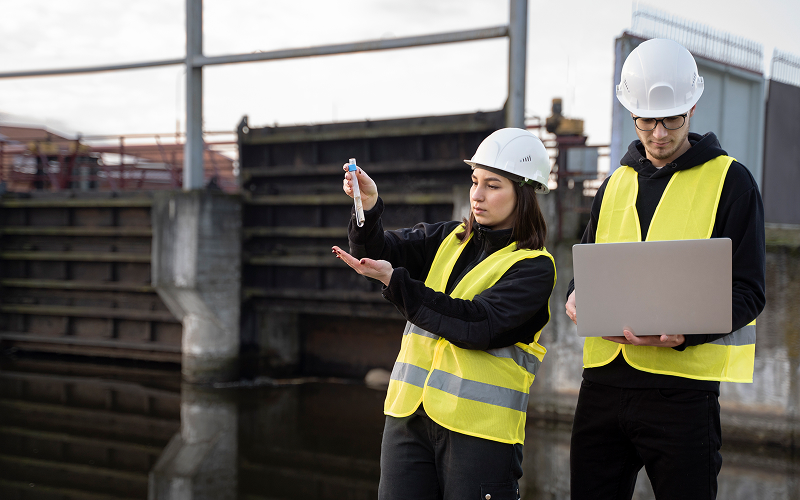Energy efficiency is increasingly important for businesses in Singapore, especially as operational costs rise and sustainability targets become more pressing. One of the most effective ways to identify energy-saving opportunities is through an energy audit in Singapore. Whether you’re running a commercial office, manufacturing facility, or data centre, an energy audit provides a systematic assessment of how energy is being used and where improvements can be made.
Understanding the primary goal of an energy audit not only helps businesses make informed decisions but also contributes to long-term operational savings and environmental responsibility.
Defining An Energy Audit
An energy audit is a detailed analysis of a facility’s energy consumption to identify inefficiencies and propose corrective actions. It is typically carried out by qualified professionals who assess electricity usage, heating and cooling systems, lighting, insulation, machinery, and overall building performance.
The goal is to develop a profile of how energy is being used and uncover areas where energy is being wasted. Recommendations may involve behavioural changes, equipment upgrades, or adjustments to existing processes.
The Core Purpose
The primary purpose of an energy audit is to improve energy efficiency. This means using less energy to perform the same functions, which directly translates to cost savings. Businesses often don’t realise the extent of their energy waste until it’s measured. An audit reveals underperforming systems, idle equipment, or outdated infrastructure that could be costing thousands of dollars annually.
Energy efficiency is particularly important in commercial and industrial spaces, where even small improvements can result in significant cost reductions over time. For companies aiming to reduce their carbon footprint, an energy audit is the first step toward achieving greener operations.
Supporting Sustainable Practices
In Singapore, sustainability has become a national priority. The government encourages businesses to adopt environmentally friendly practices, and energy audits align perfectly with these objectives. By identifying areas of excessive energy use, audits help businesses move towards cleaner, more responsible operations.
Beyond cost savings, reducing energy consumption also means lowering greenhouse gas emissions. An energy audit provides the data needed to support corporate sustainability reports and helps meet Environmental, Social and Governance (ESG) requirements for investors and stakeholders.
Enhancing System Reliability
While cost and environmental benefits are major drivers, reliability is another reason businesses pursue energy audits. For facilities that depend heavily on electrical systems—such as data centres, hospitals, and industrial plants—unexpected downtime can be costly.
One key aspect of energy infrastructure that’s often evaluated is the backup system. In such cases, an uninterruptible power supply supplier in Singapore may be consulted to ensure that backup power solutions are adequate and energy-efficient. Properly maintained and optimised UPS systems not only improve energy use but also enhance resilience during power outages.
Facilitating Better Equipment Investment
An energy audit does more than flag inefficiencies; it provides valuable data to guide future investment. Whether you’re upgrading your HVAC system, switching to LED lighting, or considering solar panels, an audit helps you prioritise based on potential returns.
Rather than investing blindly, businesses can use audit findings to make calculated decisions about energy-related upgrades. This makes long-term planning more strategic and aligned with budget constraints.
Meeting Regulatory Standards
In some sectors, energy audits are not just beneficial—they are required. Regulatory bodies may mandate audits to ensure companies comply with energy efficiency standards or building codes. Conducting regular audits helps avoid penalties and demonstrates a proactive approach to energy management.
For businesses looking to apply for green certifications such as the BCA Green Mark in Singapore, energy audits form part of the assessment criteria. Hence, audits play a role in enhancing a building’s market value and attractiveness to tenants or buyers.
Conclusion
An energy audit serves as a powerful tool for businesses in Singapore, offering insights that can drive operational efficiency, sustainability, and compliance. It goes beyond simply identifying where energy is being wasted—it sets the foundation for meaningful change across an organisation’s infrastructure and behaviour.
From cutting costs to enhancing resilience and supporting green initiatives, the benefits of conducting an energy audit in Singapore are wide-reaching. If your facility hasn’t undergone one recently, it may be time to consider partnering with a professional energy consultant or a trusted uninterruptible power supply supplier in Singapore to get started.
Get in touch with Vallous International today to explore how an energy audit can improve your business’s energy strategy and future readiness.

